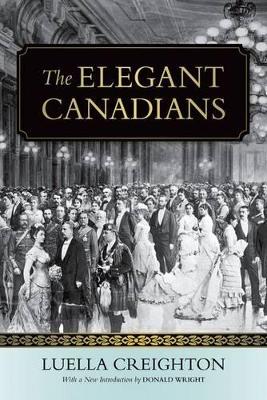Wynford Books
1 total work
Opening with the Queen Victoria's arrival in Charlottetown harbor, visitors from the Old World emerge with erroneous expectations: they are constantly surprised that the New World is a place of energy, creativity, and imagination, reflected in exuberant architecture, dress, and culture. Elegance flourishes and society blossoms in gala events where long after midnight "the crinolines swayed, multicoloured and seemingly endowed with independent life of their own." In this lively mix of fact and
fiction, Creighton is fascinated by the stuff of culture, here depicted as a distinctive weave of style, sophistication, and individuality with a unique Canadian character. Her fascination is also with cultural difference. In Canada there is undoubtedly unqualified elegance, but it is an edgier,
harder-earned elegance than that of the pompous, baggage-bound Old World.
Published in 1967, exactly one hundred years after Confederation, Creighton's book shows a Canada in the best of all possible worlds. Gone is pioneer poverty and environmental hardship, replaced now by thriving sophistication. At the same time, this is a world that still retains some respect for social hierarchy, decent manners, and old-fashioned inherited wisdom-the unspoken corollary here is that the Canada of 1967 has grown sloppy, noisy, and vulgar. Lovingly researched and assembled with
sixty images, this depiction of Canada in the 1860s reveals much about our own history and myth-making.
fiction, Creighton is fascinated by the stuff of culture, here depicted as a distinctive weave of style, sophistication, and individuality with a unique Canadian character. Her fascination is also with cultural difference. In Canada there is undoubtedly unqualified elegance, but it is an edgier,
harder-earned elegance than that of the pompous, baggage-bound Old World.
Published in 1967, exactly one hundred years after Confederation, Creighton's book shows a Canada in the best of all possible worlds. Gone is pioneer poverty and environmental hardship, replaced now by thriving sophistication. At the same time, this is a world that still retains some respect for social hierarchy, decent manners, and old-fashioned inherited wisdom-the unspoken corollary here is that the Canada of 1967 has grown sloppy, noisy, and vulgar. Lovingly researched and assembled with
sixty images, this depiction of Canada in the 1860s reveals much about our own history and myth-making.
